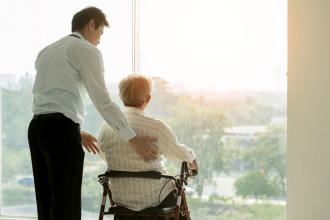Guidelines for sedating psychiatric patients flawed
Dr Dagg contends that the air transport guidelines for psychiatric patients are flawed on several counts and need to be rewritten.
Read MoreDr Dagg contends that the air transport guidelines for psychiatric patients are flawed on several counts and need to be rewritten.
Read MoreThis question should be up to the BC Medical Association’s membership to decide.
The BCMA’s proud tradition as one of the most open, democratic provincial medical associations in Canada, which has been won through the hard-fought efforts of its past leaders, is facing perhaps its greatest challenge. At the 2006 and 2007 AGMs, members expressed their concern that the culture of open debate and transparency was being eroded with the adoption of punitive rules in the Board Code of Conduct that would restrict communication with members.
Read More
The BCMA is now and has always been a democratic organization and is in full compliance with the BC Society Act.
I am greatly concerned about many of the things Dr Caroline Wang says in her article. She asserts that she has a high regard for the democratic process in her submission to the BCMJ. However, some of the views she expresses have me questioning that claim.
Read More
Like many of the individuals involved in the medical assistance in dying (MAID) movement, I witnessed the horrible death of close relatives. In my case, one of these relatives died a lingering death from dementia and spent more than 1 year in the state commonly referred to as the infantile triad; namely, unable to speak, no awareness of who she was as a person, and incontinent of urine and feces. This is not the type of death that most Canadians, including me, would ever choose.
Read More
Medical progress has allowed us to live longer with less disability. But because the culture of medicine identifies life prolongation as its premier goal, death is viewed as a failure rather than a natural completion of the life cycle. Identifying the tipping point where prolonging living becomes prolonging dying, stopping technology, and managing the dying process requires a skill set not emphasized in medical schools. Witnessing prolonged dying with poor symptom control has made people even more fearful of the dying process.
Read More